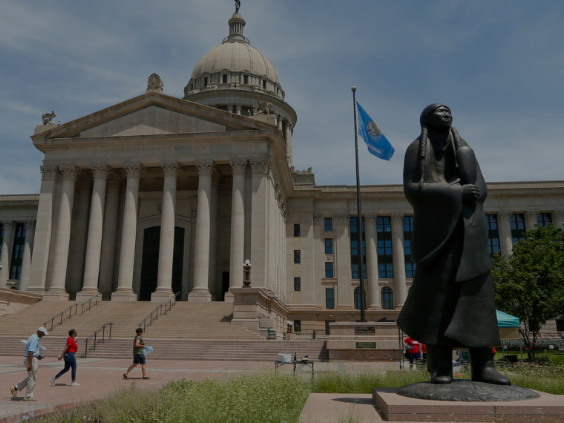
- Details
- By Chuck Hoskin Jr
Guest Opinion. As Principal Chief of the Cherokee Nation, I highly value the many partners ready to work with us in Oklahoma, both tribal citizens and non-tribal. Although a few have tried to destroy tribal sovereignty and reject collaboration with tribes, I have long suspected that position is unpopular among all four million Oklahomans.
Now a recent statewide public opinion poll confirms my experience. It shows a large supermajority of Oklahomans recognize the importance of tribal nations and the critical role for our governments in improving our state. Cherokee Nation is the largest tribe in the Oklahoma and across the country, and we are encouraged by this overwhelming consensus that tribes are good for Oklahoma. We are all better off when tribes and the state work together.
This poll is more than a snapshot of public opinion. It represents a major positive shift in the way Oklahomans view tribal nations. Twenty years ago, the sentiment toward tribal governments was much more divided. In 2002, barely half of the respondents saw tribes as an asset to Oklahoma. Fast forward to today, and a resounding 80 percent of Oklahomans say tribes contribute to the well-being of our state, with only 15 percent holding an opposing view.
This shift is a testament to tribal nations’ impact at the local level. Here on the Cherokee Nation Reservation and across Oklahoma, we have prioritized what families value most: safety, education, health care and home ownership.
The support for tribes extends across political lines, with 73 percent of Republicans and 94 percent of Democrats acknowledging the positive impact of tribes on Oklahoma. This unity in recognizing our value also transcends urban and rural populations.

Economic contributions and job opportunities provided by tribal nations were the top reason Oklahomans value tribes. As some of the state's largest employers, we have been especially important for rural areas, where quality career options are essential for both community growth and family unity.
The poll also explored the complex issue of McGirt v. Oklahoma, a case that has generated extensive debate since 2020. More than 7 in 10 Oklahoma voters are familiar with McGirt, and those familiar with the case hold an even more favorable view of tribal governments: 81 percent believe that tribes are a positive force in Oklahoma.
Oklahomans correctly perceive tribal nations as credible partners in resolving the intricate challenges posed by McGirt. Well over 80% of voters want the state of Oklahoma to work together with tribes to improve our state, not try to give the state precedence over tribal sovereignty.
Tribal nations stand ready to continue our legacy of making Oklahoma vibrant and strong. As always, we extend a hand of cooperation to our neighbors. Cherokee Nation is more than just a chapter in the state's story; it is an integral part of Oklahoma's history, culture and economy. Together, we can embrace the spirit of unity and create a brighter tomorrow for all Oklahomans.
Chuck Hoskin, Jr. is principal chief of the Cherokee Nation.
More Stories Like This
Disrupting Poverty Through OpportunityMarmot Day (Ground Hog Day) and the (Lack of) Law
Sanctuary Cities Under Siege: When Federal Power Becomes a Weapon Against the People
Denmark's Genocidal Practices in Greenland
Cherokee Nation Stands Against Predatory Lending
Help us defend tribal sovereignty.
At Native News Online, our mission is rooted in telling the stories that strengthen sovereignty and uplift Indigenous voices — not just at year’s end, but every single day.
Because of your generosity last year, we were able to keep our reporters on the ground in tribal communities, at national gatherings and in the halls of Congress — covering the issues that matter most to Indian Country: sovereignty, culture, education, health and economic opportunity.
That support sustained us through a tough year in 2025. Now, as we look to the year ahead, we need your help right now to ensure warrior journalism remains strong — reporting that defends tribal sovereignty, amplifies Native truth, and holds power accountable.
 The stakes couldn't be higher. Your support keeps Native voices heard, Native stories told and Native sovereignty defended.
The stakes couldn't be higher. Your support keeps Native voices heard, Native stories told and Native sovereignty defended.
Stand with Warrior Journalism today.
Levi Rickert (Potawatomi), Editor & Publisher

